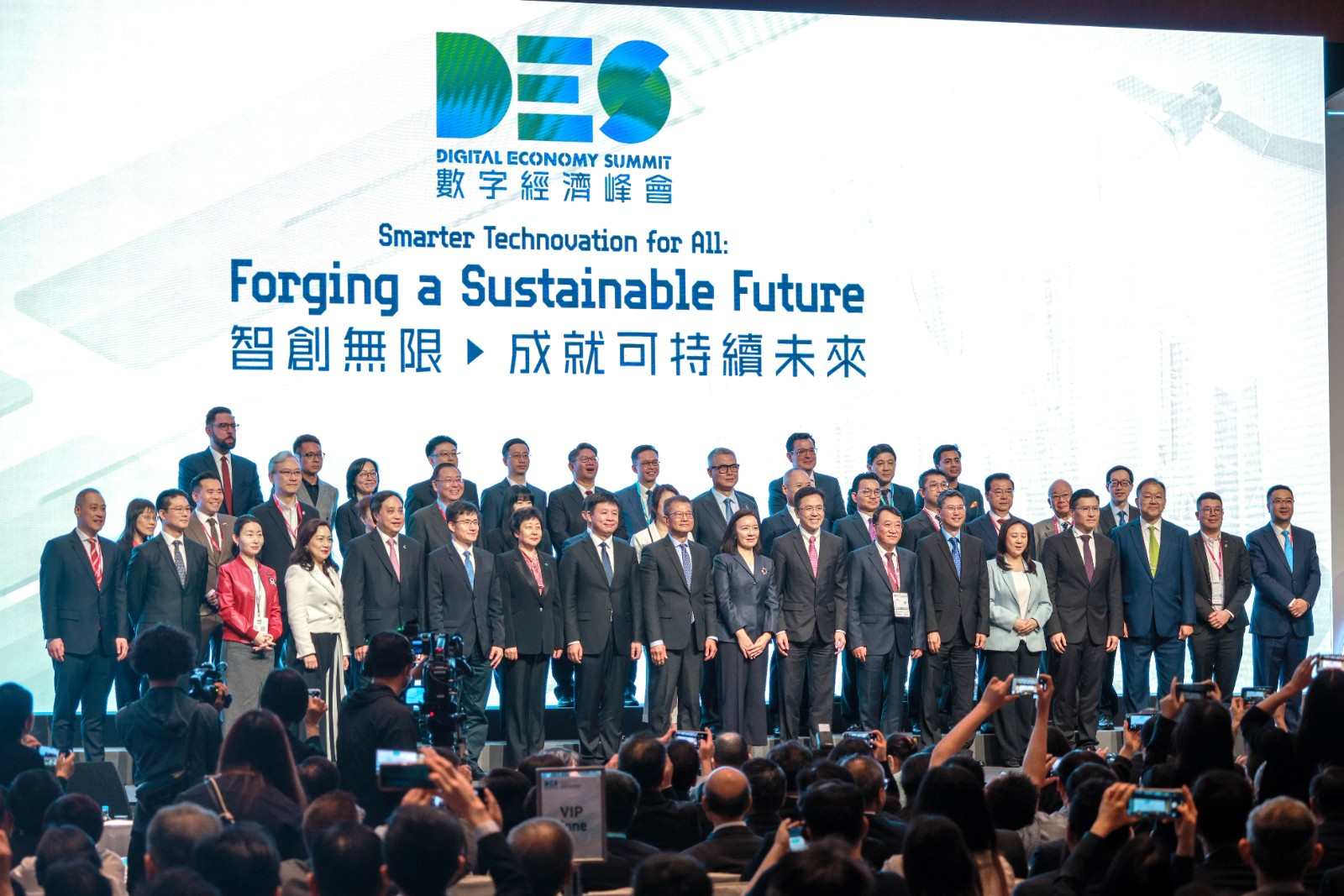2024-04-12
Oswald Chan

Hong Kong's financial secretary said on Friday that the special administrative region government will promote the digital economy in the city through strengthening overall policy coordination, bolstering digital infrastructure, facilitating local and cross-boundary data flow, expediting digital transformation, and developing a sustainable technology talent strategy. Paul Chan Mo-po made the pledge at the Digital Economy Summit, which has gathered 4,000 Hong Kong, mainland and overseas technology professionals. The event, which ends on Saturday, was organized by the Innovation, Technology and Industry Bureau, the Office of the Government Chief Information Officer and Hong Kong Cyberport. Chan said the Digital Policy Office will be established this year to formulate and implement effective digital policies. At the same time, the government will strengthen the development of digital infrastructure such as enhancing the use and coverage of 5G networks, further promoting electronic payments and rolling out the business version of “iAM Smart”. “Hong Kong is now building a supercomputing center that will serve the computing power needs of enterprises, academic and research institutions. The first phase of its service will be rolled out as soon as within this year,” said Chan. “On cross-boundary data flow, this is an area where Hong Kong enjoys unique advantages under the ‘one country, two systems’ arrangement. Hong Kong is where data from the mainland and around the world would converge. Hong Kong has long enjoyed unfettered access to international data while the city is making progress in cross-boundary flow of data with the mainland,” Chan argued. “We see clear potential for international data trading to become a new and thriving industry in the city. We have commissioned an expert group to study how best to develop a robust data-trading system in Hong Kong,” he added. Chan said local and cross-boundary data flow drives more public and private cross-boundary services, such as encouraging more research and development activities in artificial intelligence as well as life and health technologies in Hong Kong. In the business sector, the administration will extend the coverage of the Commercial Data Interchange run by the Hong Kong Monetary Authority. This initiative had facilitated more than 13,000 loan applications with a total loan amount of around HK$12 billion ($1.53 billion) at the end of last year. The finance chief also noted the government will support and incentivize the city’s small- and medium-sized enterprises in adopting electronic options through providing necessary information and skills training. And it will continue to attract, retain and cultivate digital talent through enhancing education and training, and also work to enhance digital literacy and competency for the whole community. At the summit, Wang Song, vice-minister of the Cyberspace Administration of China, said: “As of last year, the number of internet users in the country has reached 1.092 billion, and the scale of the digital economy has exceeded 50 trillion yuan ($6.91 trillion), accounting for 41.5 percent of gross domestic product, with online retail sales of 15.42 trillion yuan, and mobile payment penetration rate reaching 86 percent.” The vice-minister recommended five strategies for developing the digital economy through promoting the integration of digital and real industries; accelerating the research and development application of big data, and artificial intelligence in industry, education, finance and other scenarios; leveraging Hong Kong’s niches as a top international talent hub; activating the value of the elements of data in cementing AI governance work; and strengthening talent training and exchanges.